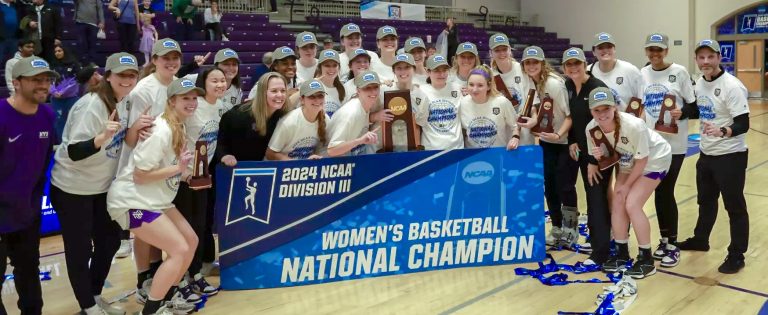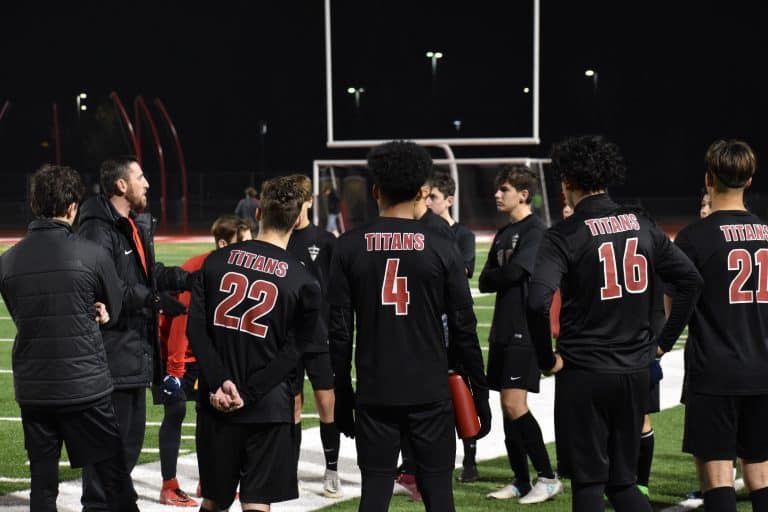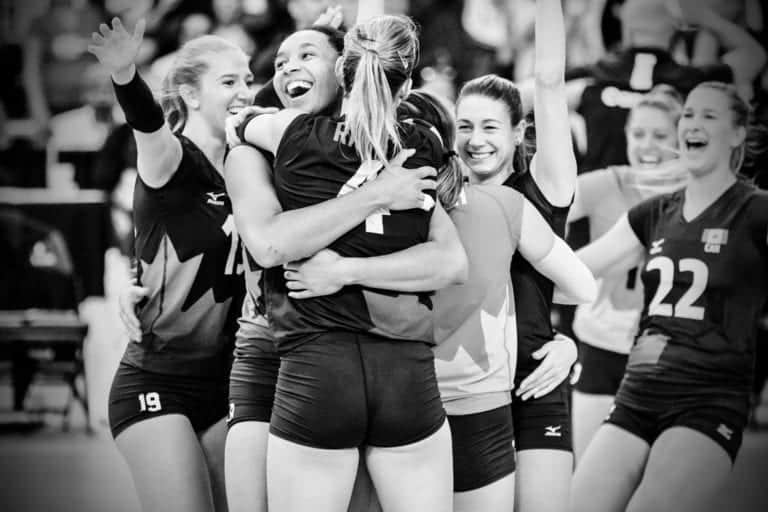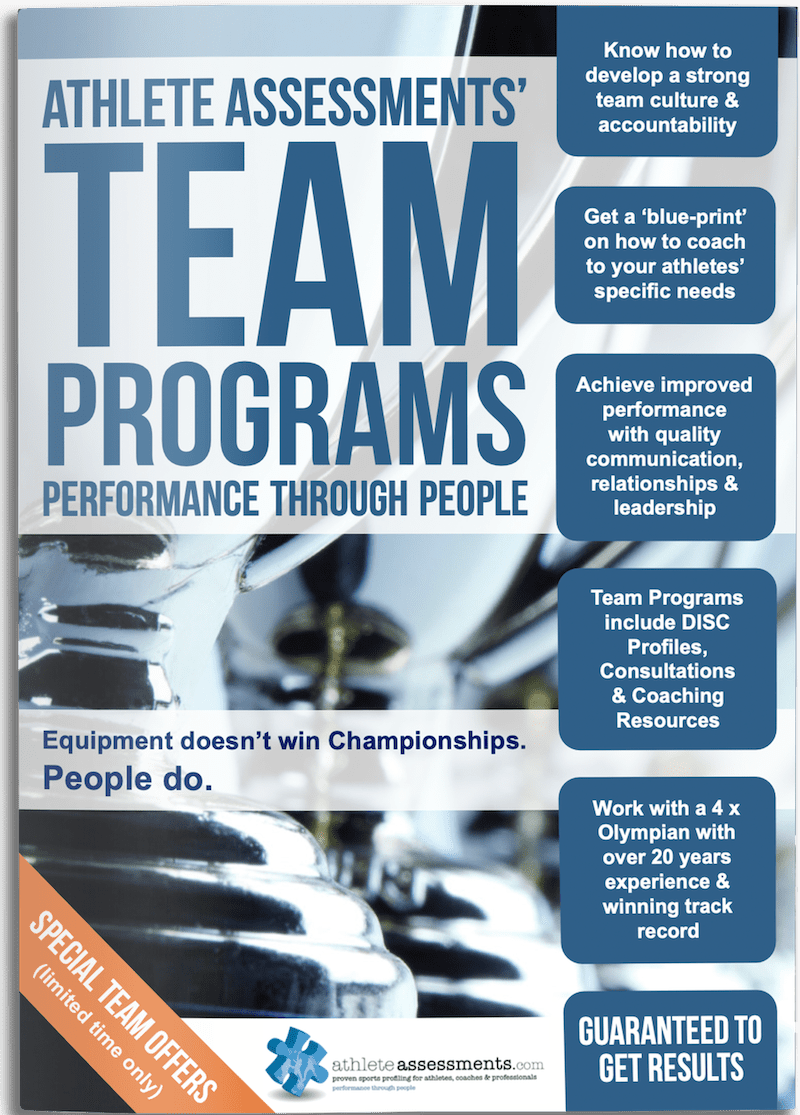Nestled in the heartland of America, the North Dakota State University (NDSU) Women’s Basketball Program has been quietly forging a path to excellence under the leadership of Head Coach Jory Collins. Over the years, this program has not only evolved in its basketball prowess but has also cultivated a culture where personal growth and team cohesion are paramount. We caught up with Assistant Coach, Michaela Everett, to learn more about their approach to development, and how this evolution has been underpinned by a deep investment in understanding each coach and player’s unique behavioral and communication styles.
Beyond the technical aspects of coaching and player management, the program’s success is deeply rooted in its cultural pillars. Michaela, has been a pivotal member of the coaching staff since 2022 and shared that they have placed a profound emphasis on fostering a culture that blends speed with depth. She added,
“With today’s athlete, it’s so important that your culture is fast, but also deep; and it’s really hard to marry those two things together. And, those things are even harder when you don’t understand the people around you.”
NDSU Women’s Basketball founded its culture on three values; Respect, Honesty, and Grit. Michaela underscores the importance of these values in shaping their approach to leadership and team dynamics. “Those are things that are displayed in our locker room. Everything we do comes back to those three things and I really like how we handle it, we not only have those words displayed, but also, what does that look like? Giving our athletes the action steps and the ‘why’ behind it.”
Michaela emphasized that this approach doesn’t just nurtures athleticism, but also personal growth,
“We pride ourselves on being educators. Our job is to teach you how to be successful, not just on the court but in life.”
Michaela shared examples of how their values are actively integrated into every aspect of the program, from recruitment to player development, to the role of the coaches as mentors. This mentorship extends beyond basketball skills to include life skills, career development, and academic success. The coaching staff’s dedication to each player’s holistic development is evident in their personalized approach, Michaela sharing that their mentorship extends to include life skills, career development, and academic success, demonstrating their commitment to fostering a supportive and nurturing environment.
She highlighted,
“We take the time to get to know each of our players as individuals. We want to understand what motivates you, what inspires you, and how we can help you achieve your goals.”
The program’s philosophy of speed and depth has been central to their strategy both on and off the court, especially in navigating the challenges posed by the transfer portal.
“We know how the transfer portal works. We know that there’s going to be people that are thinking about leaving and ultimately, we did have some people leave,” Michaela revealed candidly. However, the team’s commitment to building and sustaining their strong team culture ensured that those who remained, and those who joined, were fully invested in the program’s goals. She shares, “We want to make sure that our players are excited about being at NDSU, and really locked into what we are trying to accomplish.”
Michaela shared that the introduction of Athlete Assessments DISC Profiles with their team was a game-changer. She elaborated, “Being able to implement DISC was really big for us. We used it in the preseason when we were diving into it with our players and teaching them about the DISC Model, themselves, but also about each other and about the different pieces of our team.”
The DISC Profiles were not merely a tool but became integral to the daily operations of the team. “The athletes can see we are implementing it into our daily lives, so it sends a message that they should take it pretty seriously too. They would go in to sit with our Head Coach and he had their booklet printed out on his desk next to him. We had DISC displayed in the locker room and all over the coaches’ office… We’re really implementing it into our culture, which I think has been great.” Michaela said, reinforcing its importance in understanding and enhancing team dynamics.
NDSU Women’s Basketball are a stellar example of the effect the DISC Profiles can have when utilized as a tool to underpin the conversations and challenges that come with managing a team. Michaela shared an example of how Coach Collins embraced the tool, “I would walk into his office several times this year, and he’s just flipping through a report. Like, ‘I’m struggling to connect with this athlete in practice. What can I do to learn more about them?’”
Understanding each player’s communication style through DISC Profiles enabled the coaching staff to tailor their approach, fostering better player-coach relationships and team cohesion. “We developed little cheat sheets of ‘Here’s five things you need to know about each individual on our team, this is how you need to communicate with them,'” Michaela explains, highlighting the practical application of DISC in improving interpersonal dynamics within the team.
By consistently integrating the language of DISC into their day to day, Michaela shared that the real impact of the DISC Profiles was then felt during challenging moments, such as unexpected player transfers. Michaela recalled, “That was a really big moment for us. Everyone learnt that this was just as much their team as it was ours, and they have to be able to take ownership of it and figure out a way to work with it better.”
These moments further highlighted how critical the team’s communication and dynamics are; Michaela adding,
“The communication piece is the most important piece of our culture, because if you don’t have communication, you can’t have a good culture and the culture is what keeps kids.”
As the program prepares for the next season ahead, their focus remains resolute on their cultural pillars of respect, honesty, and grit. Michaela affirms, “We are excited by the possibilities of what new recruits and transfers bring, but their integration will be guided by our values, ensuring continuity and alignment with the team’s evolving culture.”
The NDSU women’s basketball program exemplifies how investing in understanding individual behavior can profoundly impact team dynamics and performance, and how creating a common language to refer back to when looking to understand each other provides a platform for valuing diversity amongst cohesion.
Off the court, NDSU Women’s Basketball Program also takes pride in its role within the community, and the coaches emphasize the importance of giving back and being positive role models. The team actively participates in community service initiatives, youth basketball clinics, and outreach programs, aiming to inspire and uplift the next generation of athletes and leaders. Michaela added,
“We want our players to understand the impact they can have beyond basketball.”
As they continue to evolve, Michaela concluded that their eyes remain firmly set on the future. The Bison are poised to continue from strength to strength, on and off the court, being a fierce competitor in their conference as their ability to manage challenges as a cohesive unit proves true.
Where to from here?
Athlete Assessments is proud to work with many exceptional teams and coaches through our Elite Team Program, supporting them in the development of self-awareness among coaches and athletes. This program fosters a deeper understanding of team dynamics and aligns everyone on shared goals and culture, exemplified by the journey of NDSU Women’s Basketball under the leadership of Coach Jory Collins and Assistant Coach Michaela Everett.
To explore how we can support your team in maximizing potential and cultivating a winning culture, contact us to learn more.
Recommended Articles
Bringing the trophy home for the second time in the program’s history, and first in over 25 years, we highlight the dedication and elements that have elevated NYU Women’s Basketball to National Champion status.
In previous articles, we have discussed at length why a productive team culture is vital for sports teams to be successful. But how do you actually know what kind of culture exists in your sports team and whether it is productive or effective, or if it needs development? In this article we discuss the four DISC Culture Styles which are mapped to the four elements of the Competing Values Framework.
Getting the culture right in your team and organization is crucial for success on any level. So how do you ensure that your culture gives your athletes the opportunity to achieve their fullest potential? In this 7-part video presentation, Bo Hanson discusses the importance of team culture, and how effectively utilizing the GRIP Model during your season can go a long way to ensuring your team’s culture starts on, and stays on, the right track.









